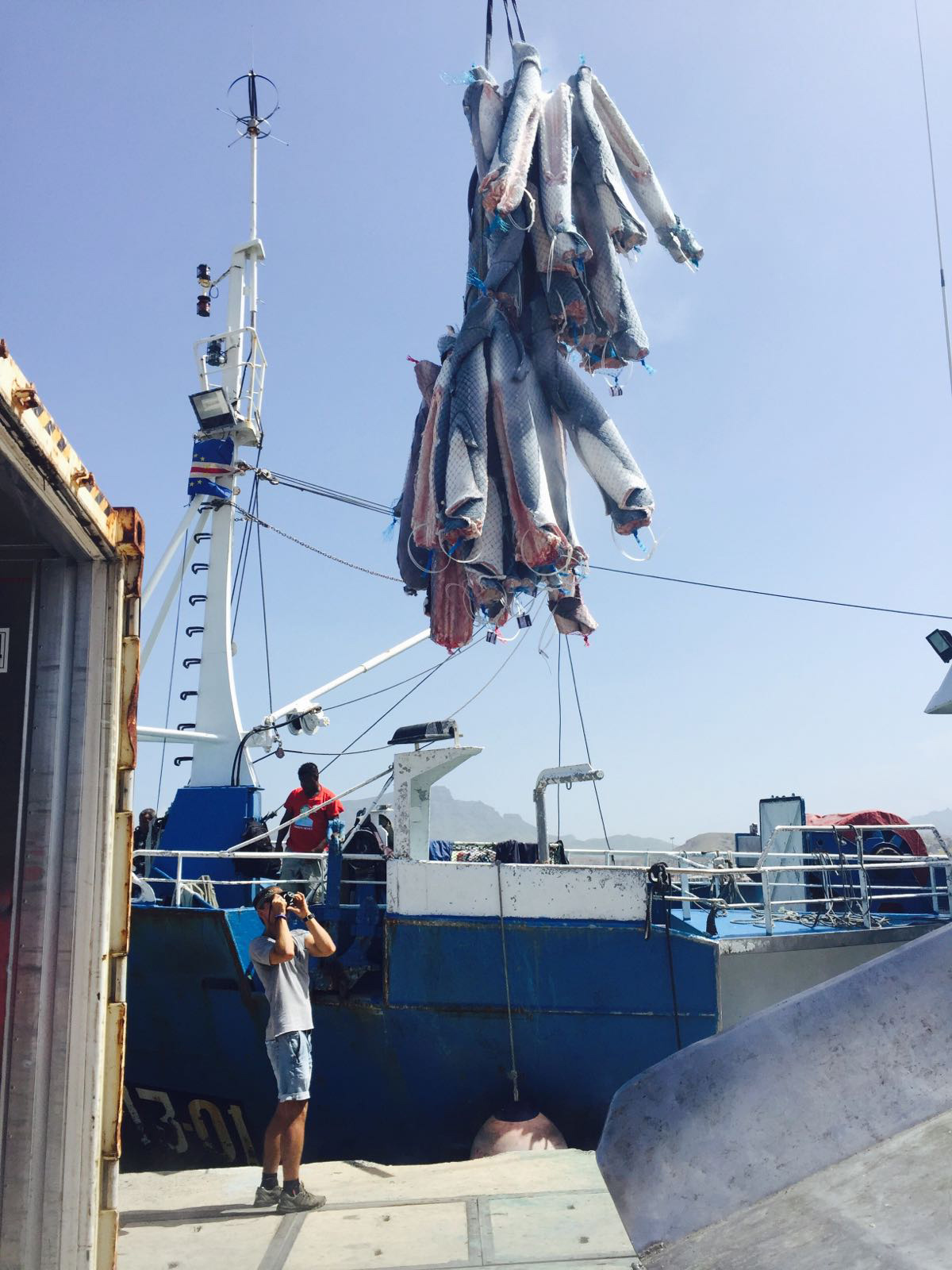- At-sea transhipments (transferring fish caught at sea by a fishing vessel to a transport vessel) is one of the biggest loopholes that allow fish that have been caught illegally to enter the seafood supply chain.
- Tuna and shark are the main objects for transhipping
- Even though certain regions have stricter regulations, transhipping violations are regularly documented regularly.
- Transhipments also enable human rights violations forcing crew members to stay long periods of time without going ashore (often in vessels that don’t meet minimum labour or safety standards).
- They also enable illegal trafficking of prohibited goods, drugs and money.
- Trawlers (53%), longliners (21%) jiggers (13%) are vessels most commonly involved in sea transhipments most common on High Seas).
- Reports have documented fishing vessels turning off their satellite positioning systems (AIS), perhaps may be related to transshipments, or to enter national waters to fish illegally.
- Subsidized fleets can approach distant waters such as Argentina and Ecuador, remain year-round, and are enabled for transhipments and take little or no responsibility for the number of types of species caught, legally or illegally.
SOLUTIONS
- Ban all transhipments at sea, ensuring that transhipment is legal and verifiable, preventing transfer of catch from contributing to illegal, unreported and unregulated (IUU) fishing. This would also help data collection on transhipping that support effective fisheries management and quality science. A global ban would also help reduce human trafficking, forced labor and other human rights abuses.
- Authorities at all levels must be ready and willing to act when they receive evidence of non-compliance to transhipment regulations.
- Global Fishing Watch uses automatic identificiation system (AIS) messages, the tracking system most ships use to avoid at-sea collisions, to track commercial fishing vessels and expose possible transhipping events. This project has created the most advanced imaging of commercial fishing vessel movements to date.
- Explaining to fishing companies that illegal transshipping could taint every step of their supply chain, thereby putting their companies at risk, could persuade them to voluntarily commit to ethical transshipping contract terms.
TAKE ACTION:
- Use Global Fishing Watch to be more aware of where your seafood is coming from.
- Advocate for a ban on all transshipments at sea.

